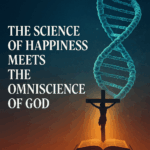“Welcome Back, Exiles” – Ezra 2:1; 6:19,21-22
1. Ezra – unfamiliar, but significant!
OK, I admit, Ezra isn’t exactly the most well-known book of the Bible, but this “return from exile” passage that I have chosen for our consideration today is certainly significant in the overall message of the Bible. There are many Bible books and chapters that lead up to what we heard today, and many other books and chapters that follow from what we heard today. Let me give you a Bible history lesson.
Arguably, the return of the Israelites from exile/slavery in Egypt under Moses – the Passover, the crossing of the Red Sea, the 10 Commandments, the 40 years in the wilderness, and a few other stories – constitute God’s greatest act of deliverance in the Old Testament. There are about 10 chapters in Genesis and 10 more chapters in Exodus that lead up to the event of Israel’s leaving Egypt. Then there is the book of Leviticus which describes a lot of the religious rules and regulations for the Jewish people to follow. And the book of Numbers describes… well, the numbers of the people from each tribe of the Israelites that were poised and ready to enter the Promised Land. Deuteronomy restates the 10 Commandments and then recounts Moses’ farewell speech and his death. The book of Joshua follows up the return from Egyptian slavery by telling the stories of how God gives His people the Promised Land and where they settle.
The book of Ezra describes the return from the second exile, the 70-year long exile in Babylon. It’s really the books of 1 and 2 Kings and the books of 1 and 2 Chronicles that give the reasons that lead up to the captivity in Babylon – the captivity story of which Ezra writes the conclusion and a little bit of the follow-up. It’s the substantial book of Jeremiah the prophet that predicts the captivity and warns the people. The books of Nehemiah, and Esther, and a few of the minor prophet books like Haggai and Zechariah also contain some of the “return from exile” follow-up. That’s ten entire Bible books that depict the activities relating to this Babylonian exile, and that’s twice as many Bible books as the Egyptian exile story.
2. The Ezra Back Story
So, let me compact the story into a minute or two. After the Israelites returned from their extended exile in Egypt, they spread out through the Promised Land. They promised to be faithful to God, but because they hadn’t completely driven out the foreign people in the land, they ended up being drawn to worship the false gods of those pagan people. God was not pleased. Then, even though God was their king, they asked for their own king – just like the other nations. God was not pleased with that either, but He allowed it. After the reigns of David and Solomon, the nation split into two kingdoms – the Northern kingdom called Israel and the southern kingdom called Judah. They each had their own kings, and prophets, and history. And that got them into more trouble. The northern kingdom fell away from God first, and God used the Assyrian world power to conquer and disperse those faithless people in 722 B.C. 130 years later, the southern kingdom followed their northern brothers and fell away from God, too. This time God used the new Babylonian world power, and King Nebuchadnezzar, to bring the straying people of Judah into exile in Babylon. The exile was imposed on God’s people from without, from King Nebby. It lasted 70 years, just as the prophet Jeremiah prophesied.
Oh, and to add one more Bible book that was impacted in a minor way by that Babylonian exile, let’s have a listen to Psalm 137 – a Psalm made familiar by Boney M in 1978. I’m not going to sing a solo, I’m not going to ask you to sing it… just listen to the words: “By the rivers of Babylon we sat and wept when we remembered Zion. There on the poplars we hung our harps, for there our captors asked us for songs, our tormentors demanded songs of joy; they said, ‘Sing us one of the songs of Zion!’ How can we sing the songs of the Lord while in a foreign land?”
That pretty much sums up the attitude of the people who were in exile – they couldn’t even sing praise to God. In Babylon, they felt that they were separated from the temple, from the land, and from their God. Songs of praise could not even escape from their lips.
3. A Covid exile??
Does that sum up your attitude from the last 18 months? Do you feel like you’ve been in exile? Do you feel like the exile has been imposed from without – not from wicked King Nebby, but from wicked King Covid19 – you see, Dr. Bonnie Henry is not the bad guy, she’s just the bearer of bad news. Do you feel like you haven’t been able to sing the Lord’s songs in the isolation of your own home, even if you’ve watched the worship service on your computer or TV? Is your heart not in it? Have you sat and wept at what you have heard every day about case counts and as you wondered if and when we even might emerge from this virus-imposed exile?
And if that’s the way you feel, it leads to discouragement, hopelessness, anxiety, frustration, maybe anger, and the questioning of what God is doing and why.
4. Exile over… joy renewed
Let’s go back to Ezra and the Old Testament exile. I didn’t read this part, but in chapter 1, we hear about a changing of the guard. Assyria was the Middle Eastern world power in the 700’s B.C. and they conquered the northern kingdom of Israel. Babylon was the next world power in the 600’s B.C. and into the 500’s B.C. They conquered the southern kingdom of Judah, and destroyed the temple, and took the people back to Babylon in captivity. Their kingdom didn’t last either. Next came King Cyrus as the ruler of the Persians in the late 500’s B.C., and he adopted a policy of returning all the captive people to their original homelands. So, after 70 years – just as Jeremiah prophesied – the exile was over and the people of Judah were on their way back home to Jerusalem. Was it something they had done? Absolutely not! Just as the exile was imposed on them from without, so the return from exile was from without. God used the Babylonians to impose His judgment on His straying people. God used the Persians to bring the people of Judah back home. In doing so, God extended His grace and mercy on those same people who couldn’t sing the Lord’s song in that foreign land.
And what was the response of the people? They kept the Passover. They purified themselves. They praised God with joy. Hopelessness was replaced with a journey home. Captivity was replaced with freedom. Religious restrictions were replaced by a keeping of the Passover Feast. Mute tongues that couldn’t sing the Lord’s song were replaced by loosened tongues that praised God with unleashed and renewed joy. The exile was over, they had hope for the future.
5. Our response to “exile ending”
Let’s switch centuries again and talk about our own lives. If the last 18 months have felt like the Babylonian exile – maybe not 70 years, but definitely more than 70 weeks – then it just might feel like we are emerging from that exile. I know some of you – the early adopters – were eager to come back last September when the case counts were low. You may have been the first ones to come back when things opened up again this spring. You’re like the first Israelites that returned from Babylon. Others are more cautious… not sure if the exile is truly over. And that’s OK, too.
What is our response to the exile which is bit by bit appearing in our rear-view mirror? We purify ourselves by our repentance. We keep not the Passover, but the new covenant of the Lord’s Supper. We praise God with our songs of joy. The hopelessness of 18 months ago is being replaced with a light that grows ever brighter. Our in-home captivity, our house arrest, is being replaced with increasing freedoms. Religious restrictions are being lifted as we sense a comfort level at gathering together for public worship. Mute tongues that struggled to sing the Lord’s song are being replaced by loosened tongues that once again praise God with unleashed and renewed joy.
I wish we were able to celebrate more freely today, with the pews packed like pre-Covid Christmas Eve sardines, with no masks and no fear, with loud and joyful singing. But for the time being our praise of God is still somewhat subdued.
Our exile was imposed from without… by King Covid19. Our exile will also be terminated, our freedom will also be announced from without… by provincial political or health authorities. But just as the end of the Babylonian captivity of the Israelites was ultimately orchestrated by God, so we want to understand that the end of our exile will be orchestrated by God – in His time, and in His way, according to His will. But in the meantime, our joy is peeking out here and there just like sunshine peeking out from behind the clouds. During this time, God has not been hiding. He has been present in our online services, in caring phone conversations, in household appointments for Holy Communion, in the exercise of patience and understanding within family units, in messages sent via e-mail, in Zoom Bible Studies, and in so many other ways. God didn’t let the captive people of Israel lose their faith and hope completely, and God has been faithful to us, too. Now, as we see Him peeking out more and more from behind the discouragement and despair of the last year and a half, our joy and our hope is renewed, and we begin to see the very character of our great and gracious God.
6. Prodigal Son “exile”
I intentionally paired Jesus’ parable of the Prodigal Son in Luke 15 with our story of exile today. That story is somewhat different in that the younger son chose to leave his father and his home rather than have an exile forced upon him by some outward circumstance. Luke doesn’t tell us what prompted the son’s drastic action. I guess we might assume that, like any young adult of our time, this lad just felt like it was time to get out from under the rule of mom and dad. The difference is that initially he had no intention of coming back… hence, the “give me my share of the property” demand of his father. Reluctantly, I’m sure, the father divided his property between this young son and the stay-at-home brother, and dear-old dad may have buried his face in his hands thinking of what that younger son was going to do. And he did precisely what his father dreaded – he wasted his entire inheritance on the proverbial “wine, women and song.” After getting a job slopping food for unclean pigs – oh, and doesn’t God have a great Jewish sense of humour – yes, after slopping food for pigs for a while, the young man finally came to his senses, realized what he left and who he left when he ran away from home and determined to go back – even if as a hired servant. His circumstances from without forced him to end his self-imposed exile, and it’s at this point of the story that the character of the father (and of our Heavenly Father) shines through with unimaginable grace. The son is coming home, having rehearsed his repentance speech. I always picture the father sitting on his rocking chair on the veranda at the end of the day, looking down the road, just watching and waiting for his lost son to come home. And one day, it happens. And dear old dad jumps off his rocking chair, pulls up his robe and runs down the dusty path to welcome and embrace and kiss his son… yes, HIS SON!!
When the young man begins his repentance speech, the father doesn’t need to hear much. He interrupts him, gives him a robe, a ring, and sandals, and calls for a celebration to take place. “This my son was dead, and is alive again; he was lost, and is found.” And just like the returned-from-exile Israelites broke into songs of joy, so this household began to celebrate with music and dancing.
7. God’s “Welcome Home!”
Have you ever felt like that run-away son, that run-away daughter? I think we all have, at some time or other. What I want you to hear today is that God – who is represented by the father in this story – has been waiting, and is always waiting for you to come home, from whatever exile has led you away from him… self-imposed or imposed on you by something else. Whatever repentance speech you have sincerely rehearsed and begun, God needs only to hear the first words – “I have sinned” – before he interrupts and says “I forgive you, I forgive you, I forgive you for the sake of MY SON, Jesus!” And then the welcome and the embrace and the gifts and the celebration can begin in earnest. If you have been away from God – physically, or emotionally, or spiritually – He extends His open arms to you and says, “Welcome back, exile. I’m glad you’re home. Receive my gifts… let’s celebrate!” And it feels good, real good to be home, and to feel those tender yet strong arms of God envelope you and to know that the past is the past, and the future, the blessed future is still to come.
God’s grace and forgiveness in Jesus doesn’t expire – there is no “best before date” on God’s love. If you’ve been gone for 70 minutes, 70 weeks, or 70 years – hey, it doesn’t matter. God’s arms are always open, His embrace is always waiting, and sincere, His love is always there for you! “This my son was dead, and is alive again; this my daughter was lost, and is found.” Celebrate with joy, for the past is the past, and the future, the blessed future is still to come!
Yes, there is another exile for us to include in our consideration today… the fact that we are exiled on earth. It used to be a paradise, with God in close personal relationship with our human ancestors, but when that got broken by sin, earth became a place of exile. One day, one future day, when we take our last earthly breath, we will see the heavenly rocking chair in the distance still moving back and forth, while the Heavenly Father is bounding closer and closer, welcoming us back home, to His very presence. So, welcome back, exiles… welcome home! Amen.








